To examine an ancient text requires an understanding of the ancient imagination. The Oresteia is set in a primitive world where people believed that every animal, tree, stone, river, mountain, star, cloud and clap of thunder was inspired by a spirit controlled by the gods. Heaven signalled its wishes through dreams, oracles or chance events which were interpreted by prophets. What we understand by ‘faith’, i.e. a volitional fealty to a particular religious code, didn’t exist. There was no free will either. Mortals chose between one divine instruction or another. The genius of Aeschylus was to commit his characters to a cycle of moral conflicts where every act of obedience was also an act of betrayal. Agamemnon must avenge Helen’s rape by attacking Troy but to gain a fair wind he must sacrifice his daughter, Iphigenia. Clytemnestra must avenge Iphigenia by committing the sin of murdering Agamemnon. Their son, Orestes, must avenge Agamemnon by killing Clytemnestra. That’s the plot. It opens with two eagles tearing apart a pregnant hare, whose womb spills its bloody contents into the earth.
This weird and disturbing universe is best approached through unexpected, offbeat effects. Adele Thomas’s production for the Globe opens with the black-clad chorus explaining the storyline using spare and restricted movements. Clytemnestra appears wearing a white robe swarming with freakish black diagonals. Agamemnon enters, a conquering king, rooted to his chariot like a captive. She welcomes him with lying expressions of fidelity. He suspects that she’s lying. She suspects that he suspects that she’s lying and the dialogue is fraught with ironies and covert tensions. Agamemnon steps on to a ceremonial sheet dripping with blood and exits to his bath where he’s netted and slaughtered. Clytemnestra reappears with his butchered body on an altar. Her face, arms and robe are drenched in blood. This is the opening gesture of European drama and it’s dominated by a woman of almost limitless complexity. She’s a killer queen, a bereaved mother, an adulteress and a traitor. Yet she’s also the instrument of moral justice and ultimately its victim as well. By avenging her daughter she lays her son under a sacred duty to murder her. This slow, eerily paced production brilliantly evokes the sheer strangeness and horror of the play. Rory Mullarkey’s translation follows the Aeschylean original faithfully and his lyrics make some attempt to evoke the percussive muscularity of the choruses. The discipline of the production is spoiled a little by Trevor Fox’s Aegisthus, who comes on as a drunken Geordie in an ill-fitting suit, a bit like a bladdered wedding guest. But when he describes the feud between his family and Agamemnon’s, his speeches reach an even higher pitch of tragic solemnity. I haven’t seen anything quite as sickening or as stately as this version of these plays. The director proves that to do Aeschylus justice you just need to do Aeschylus. Keep out of his way and let him speak.
Robert Icke’s Oresteia, set in modern Britain, takes us as far from the original as possible. The plot seems like utter tripe in an age when political leaders are weaponised diplomats waging wars at the touch of a button. The idea that a prime minister would murder his daughter as part of his military strategy is inconceivable. So our faith in the play expires at the outset. The scene in which Iphigenia is lethally drugged by her father is creepily revolting and curiously tedious as well. Agamemnon cries a bit when she dies. Then he shouts a bit. Later, when he returns from Troy, he’s greeted by Clytemnestra who wears Boden casuals and a slightly prickly smile. She looks like a yummy mummy who’s just burned the home-made fudge. There’s no menace, no double talk, no sense of impending doom.
The staging is flashy and often stylish but it adds no weight to the drama. And the text has been massacred. Icke’s translation is both orotund and banal. Great chunks of new material have been inserted while the role of Aegisthus has dwindled to a few syllables which, confusingly, are spoken by Agamemnon. To convey extreme passion the actors have been told to crank up the volume. They all scream like overladen jumbos. But basic directorial wisdom states that players should always hold something in reserve. To expose every last scrap of emotion is to admit that there’s nothing left to see. And the audience tunes out. Then it walks out. That didn’t happen during this 215-minute ordeal mainly because the closing court scene was rattled off at breakneck speed. I have a hunch that the producers fancy this as a TV series. It may well bore millions in that form. But as theatre it’s a relentless slab of bombast. And to call it Aeschylus is to invite the attention of trading standards officers.
Got something to add? Join the discussion and comment below.
Get 10 issues for just $10
Subscribe to The Spectator Australia today for the next 10 magazine issues, plus full online access, for just $10.

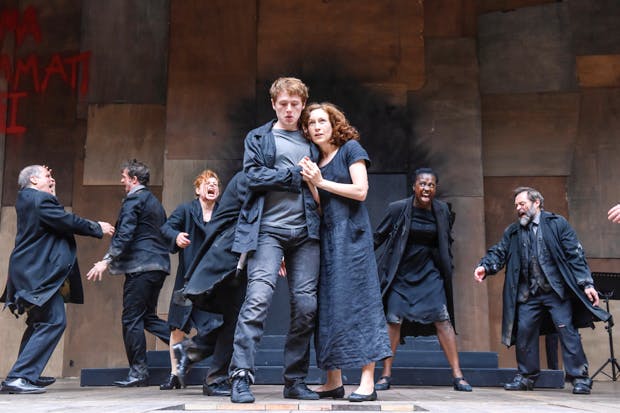


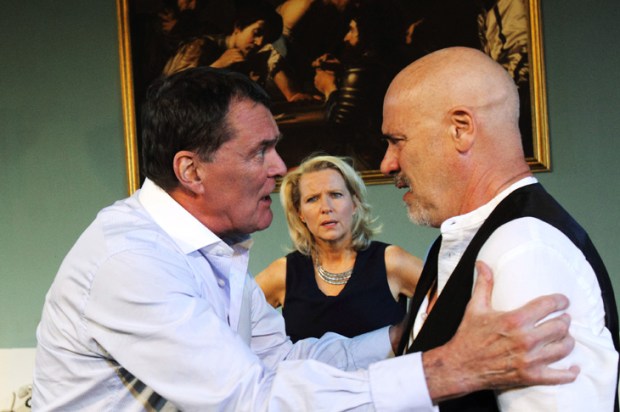
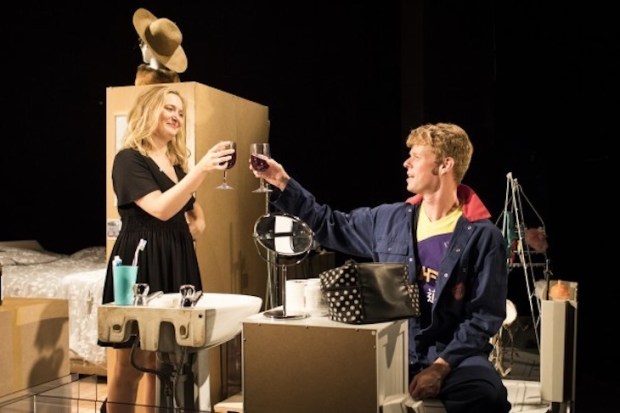
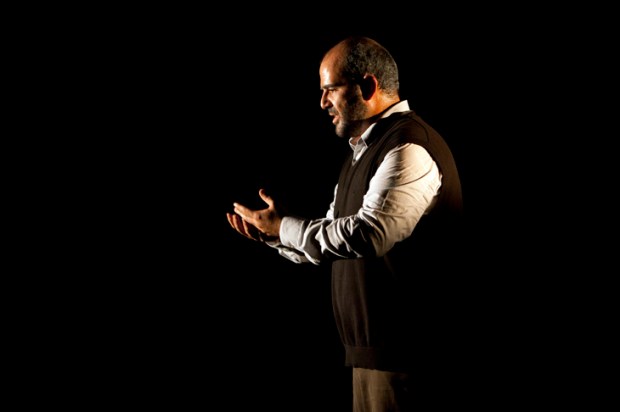
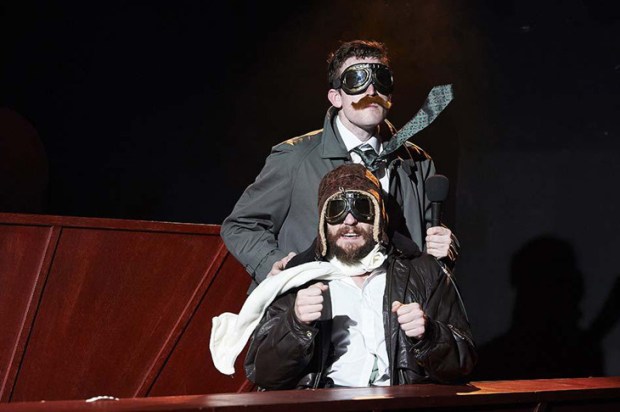






Comments
Don't miss out
Join the conversation with other Spectator Australia readers. Subscribe to leave a comment.
SUBSCRIBEAlready a subscriber? Log in